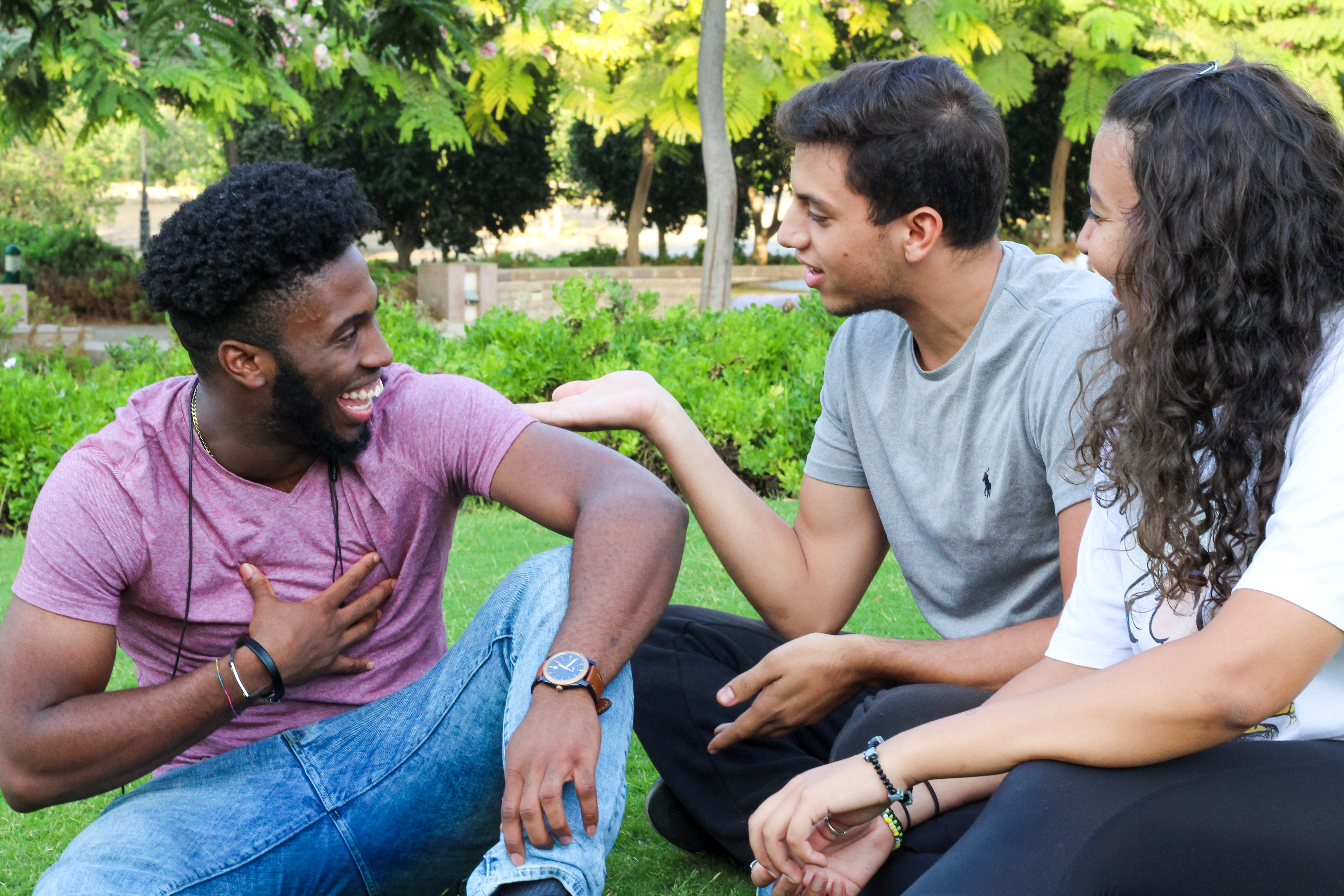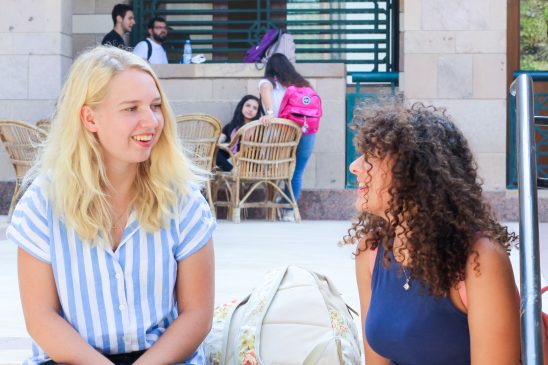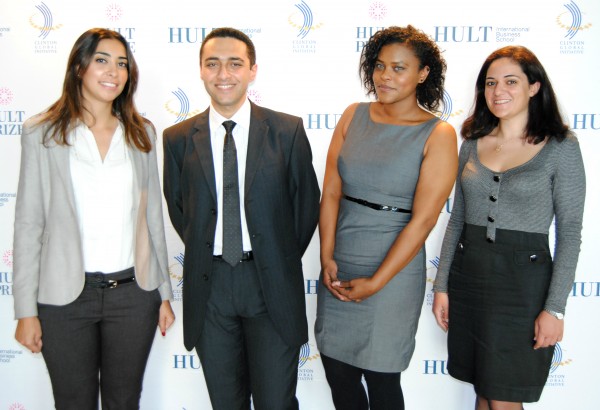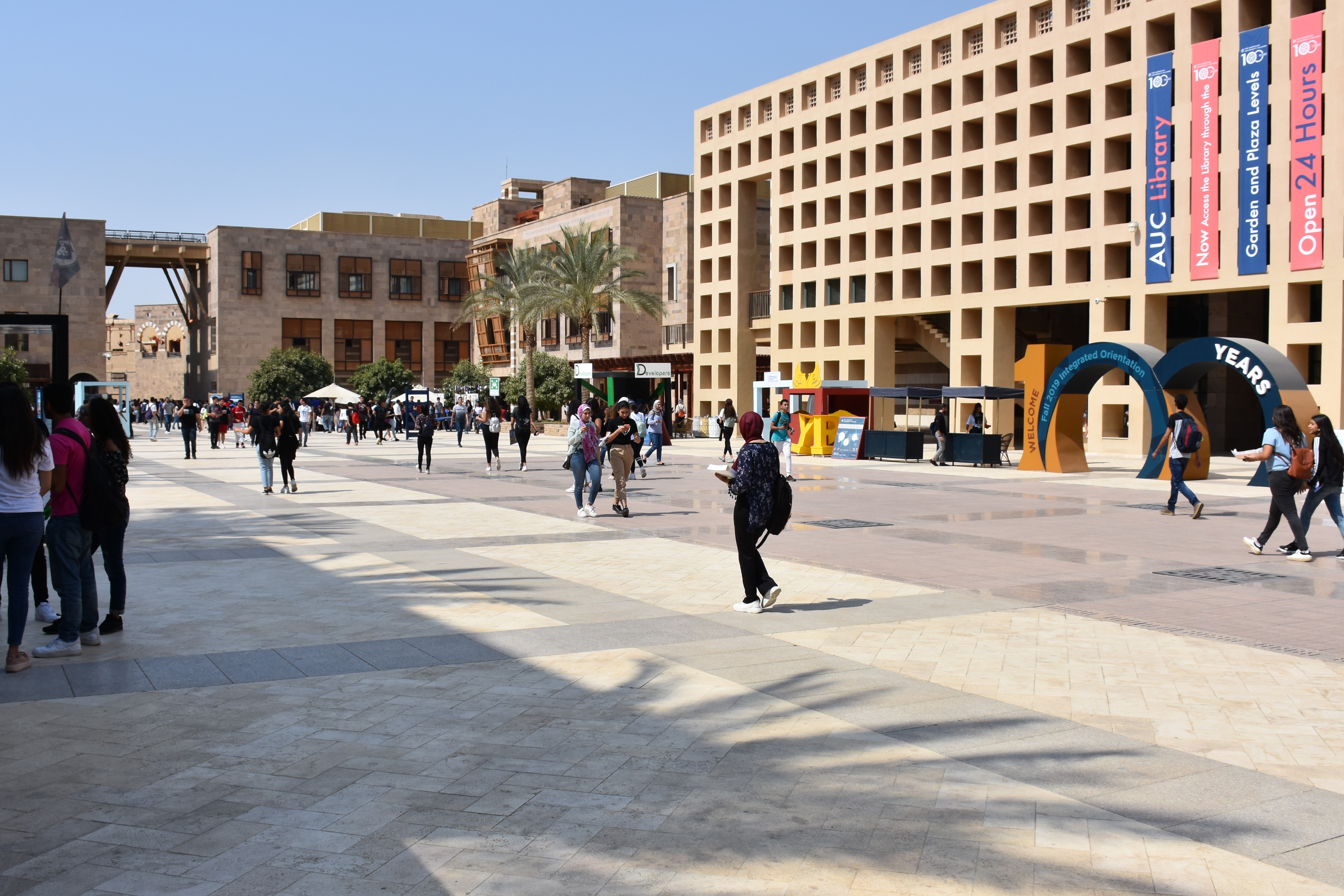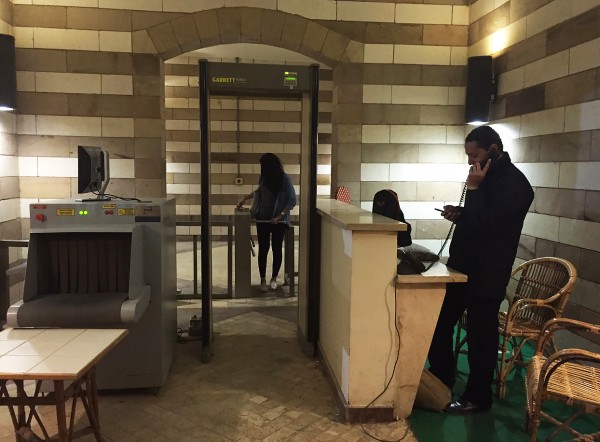Far from Home or Have They Found Home?
By: Nesrien Abdelkader
@NesrienAshraf
Although their numbers have declined in recent years, international students who decided to attend AUC now consider campus their home away from home thanks to the friendships they’ve made.
Following the 2011 revolution, there was a significant decline in the number of international students at AUC due to safety concerns.
“The number of international students drastically dropped from over 1000 students to around 350 and we’re maintaining that number until now,” said Amal Salah, senior director at the Office of Student Life (OSL).
The foreign students represent about 50 countries and the challenge has been to integrate them with the Egyptian students. Nevertheless, students who have come to Egypt are enjoying their experience.
“I would say that I feel pretty included in the AUC community because I have a lot of Egyptian friends that attend AUC,” said Global Public Health and Middle Eastern Studies senior Biafra Okoronkwo.
Okoronkwo, a Nigerian-American, is currently in his second semester at AUC and appreciates the experience of studying abroad.
“Egypt is the cultural center of the Middle Eastern and North African region,” he added.
Due to his field of study, he found Egypt to be the perfect place to further his education and improve his Arabic skills through his interactions with the locals.
Political Science freshman Judith Uttendorfer feels the same way.
“I just fell in love with the Egyptian people, they are so kind, so open and so warm. It’s really different from Germany. I just wanted to learn more about the culture and get to know more Egyptian people who are my age,” said Uttendorfer.
She originally came to Cairo to visit her mother, who is currently living here, for one week. But she ended up deciding to stay for the next four years.
“I know that most of the international students only do one semester or one year, but I want to stay here [until I graduate]. I think it’s really interesting to study political science in Egypt because of the situation here,” she said.
A good way for international students to mix with their Egyptian counterparts and interact with the community is to join campus clubs and organizations such as the Student Union (SU).
“I’m already in two clubs, the Political Science Association, the SU and also tried out for the rowing team. I feel like it doesn’t make a difference if I’m Egyptian or not. The people are kind. They accept me and speak English when I’m around. I feel included like I would be in any German university,” said Uttendorfer.
Okoronkwo participates in club activities as well. Being a member of the African Heritage Association, the choir and track team makes him feel included, he said.
The activities that international students pursue are not limited to the university campus. Students have been using their time here to explore Egypt, with local friends or through OSL trips and services.
“I recently started going out with Egyptians off campus and hanging out,” Okoronkwo said.
Although students agreed that they were comfortable and well adjusted, there are still improvements that could be made in their relationship with Egyptian students.
Egyptian students are not averse to interacting with international students, but there aren’t many opportunities for it to happen, said Farah Tawfik, integrated marketing communication junior.
“Egyptian students are all the same, but international people are interesting because they come from different backgrounds,” she said.
The OSL is working to improve student relations as it is planning new opportunities for Egyptian and international students to interact.
As they provide transportation, loans and emergency services, the OSL do the best they can to ease international students into life in Egypt and help them on and off campus.
“We are trying to play the role of home for international students,” Salah said.
Salah also highlighted the mutual benefits that international and Egyptian students stand to gain from interacting with each other. Students visiting Egypt gain knowledge about another culture and language, while Egyptians gain experience working with people from other countries.
“An American education abstractly in books and curriculum is not enough, interaction with people is very important. It’s important for the formulation or character of an AUCian that they can easily deal with international professors, staff and students,” she said.

